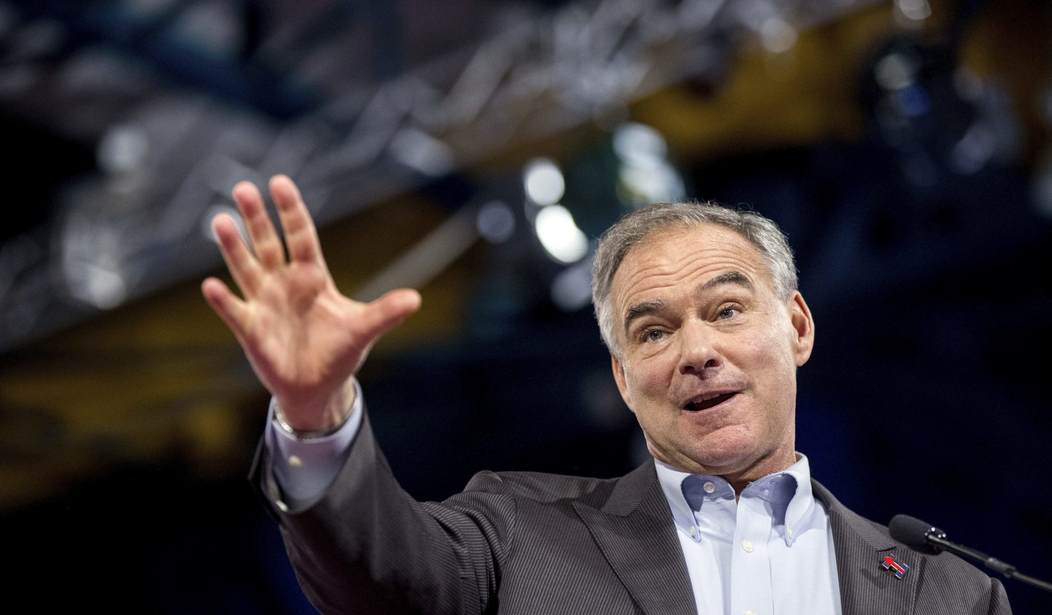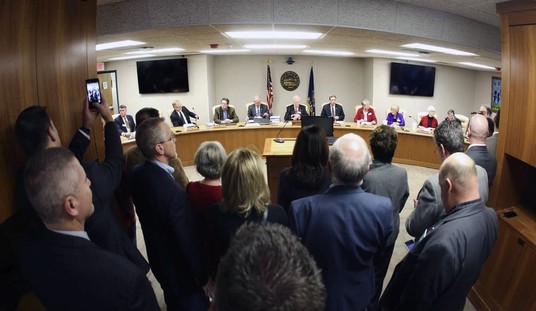In an interview on the Spanish-language show “Noticias Telemundo,” Virginia Senator Tim Kaine, the Democrat nominee for vice president, said that Spanish was the language of America before English. Kaine has often given speeches in Spanish, and on Sunday he gave a sermon entirely in Spanish at Pneuma Church in Miami, Fla.
“Latino culture is one of the most important things in our country right now because we have had Hispanic roots since the beginning. … Spanish was the language of our country before English,” Kaine told Telemundo host José Díaz-Balart on Monday, according to a translated transcript.
“It’s important to remember that, and celebrate it,” Kaine argued. “And also, the issues important to Latinos are the same: education, economic development and, especially, respect. In this campaign the question of respect is very important, because the two sides of the campaign have very different opinions about the Latino community.”
Kaine was hinting at Donald Trump’s many disparaging comments about immigrants from Mexico, which have been attacked as racist. Trump’s complaints mostly focus on illegal immigrants, as opposed to people of a particular race. The Republican nominee has not specifically disparaged Latinos, but many feel insulted and attacked by his comments, especially as many media outlets have reported them as racist.
Clinton has gone overboard in her attempts to appeal to Latinos, and even the Huffington Post has acknowledged her efforts veer into “Hispandering.” She has launched Spanish-language ads specifically targeting Latinos, especially in Florida. Nevertheless, some Puerto Ricans in that state are still on the fence about her. Nevertheless, the outreach seems to be working.
According to a recent NBC News/Wall Street Journal/Telemundo poll, Clinton leads Trump among Latinos by a whopping 50 percent.
Nevertheless, Kaine’s statement that “Spanish was the language of our country before English” is not accurate. If “country” means “a state or nation,” English was the first language of the United States of America.
In Spanish, however, the word Kaine used was “país,” which means “country” or “land.” If Kaine meant the land which now occupies the United States, he might be correct, but the statement that “we have had Hispanic roots since the beginning” might be considered insulting to the native Americans who lived in North America for thousands of years before the arrival of Spanish-speaking explorers.
Even so, Spanish was never the language of the entire continental United States in the way that English is today. Yes, thousands of people in the United States speak Spanish, and many areas have endorsed the language, but America’s laws and founding documents are in English (although German and Dutch versions were also drafted).
This is not to downplay the Latino culture across America — such culture should indeed flourish among those who are in this country legally. But the United States is strongest if we have a common language for laws and public discourse, and if our leaders represent the entire country, as opposed to specific minorities within it.









Join the conversation as a VIP Member